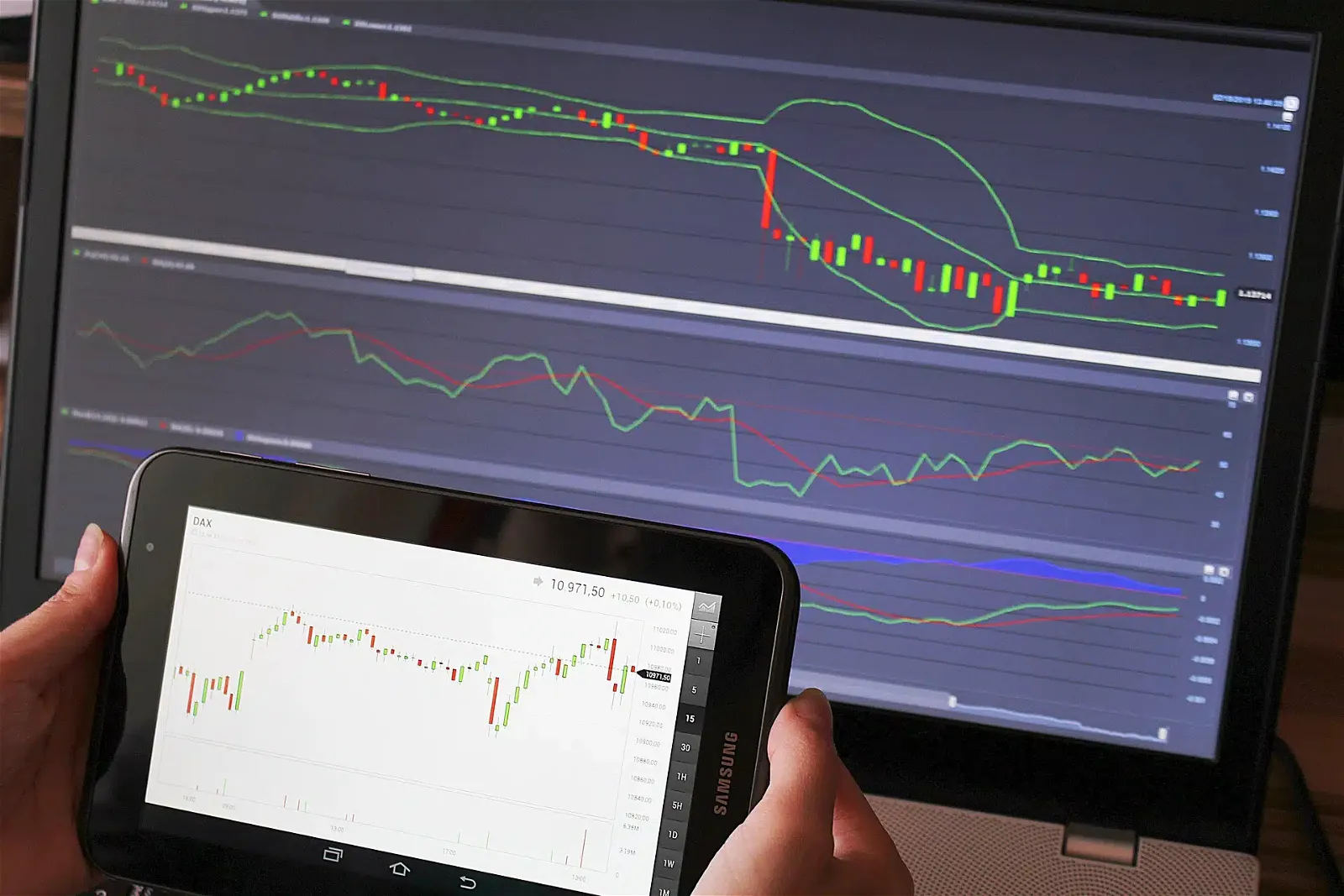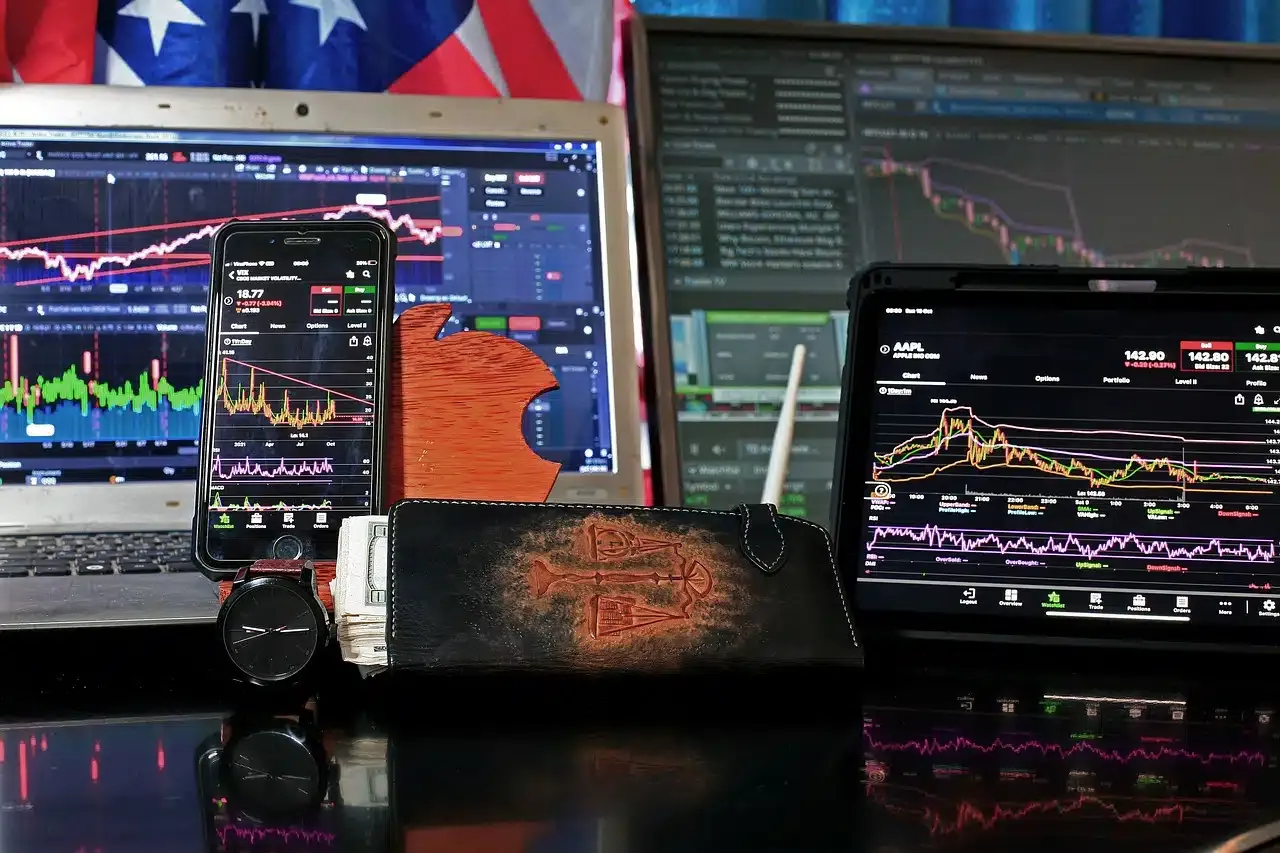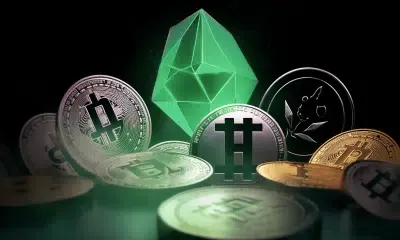9 Best Altcoins to Buy During a Crypto Bull Run
Ride the crypto wave to success! Discover the top nine altcoins that could skyrocket during a bull run, and make informed investment choices for your financial journey.

Welcome to the dynamic world of cryptocurrencies! As the market gears up for a potential bull run, savvy investors are on the lookout for the most promising altcoins to buy and add to their portfolios. With countless projects vying for attention, it’s crucial to make informed investment decisions.
This blog delves into the nine best altcoins poised for substantial growth during the next surge. Whether you’re a seasoned trader or new to the crypto scene, our curated list is designed to navigate you through the bustling altcoin market and help identify prime investment opportunities. Let’s dive into the future of investment with these promising digital assets!
Top nine high-growth altcoins to buy in a bull run
Before diving into specific altcoins, understand the broader concept by exploring what altcoin season is and what traders can expect from it. So, now without further ado, let’s take a look at the nine altcoins you can buy in a crypto bull run.

Exploring long-term crypto holdings – Image via Freepik
1. Cardano (ADA)
Cardano is a prominent blockchain platform known for its emphasis on peer-reviewed scientific research and high-assurance development. Its unique two-layer architecture separates the settlement layer from the computation layer. This allows for more flexible and efficient transactions and smart contract executions.
Consistently ranking within the top 10 cryptocurrencies, ADA has showcased remarkable price appreciation. It has surged by 165.13% in 2023 and 677.65% all-time.
Moreover, the platform has seen the highest developer activity in the last month, indicating a robust and continuously evolving ecosystem. Additionally, its burgeoning non-fungible token (NFT) sector has witnessed a rise in sales volume in the last 30 days. Consequently, this signifies a growing interest in Cardano’s capabilities for supporting digital assets.
2. Optimism (OP)
Optimism (OP) has emerged as a beacon in the Layer 2 scaling solution landscape for Ethereum (ETH). It aims to enhance speed and reduce costs while maintaining security. In a time marked by uncertainty in the crypto market, Optimism showcased resilience, with its token OP witnessing a significant appreciation of 252.21% in 2023.
Positioned for growth, Optimism’s OP Stack—an open-source toolkit—has become popular among developers, particularly in the gaming sector of Web 3.0. With the gaming market’s cap fluctuating between $4 billion and $7 billion and the introduction of 76 new gaming networks in 2023, the demand for scalable blockchain solutions like Optimism is escalating. As such, Optimism is poised to capitalize on these trends, promoting widespread adoption within the gaming and broader Web 3.0 ecosystem.
3. Dogecoin (DOGE)
Dogecoin, affectionately known as “DOGE,” began as a light-hearted meme cryptocurrency. However, it quickly evolved into a prominent digital asset with a fervent community. Initially created in 2013 as a satirical take on Bitcoin (BTC), Dogecoin features the Shiba Inu dog from the “Doge” meme as its logo.
Despite its playful origins, DOGE has demonstrated substantial growth. In 2023, Dogecoin witnessed a growth of 34.71%, reflecting a steady interest and investment in the coin. Over its lifetime, Dogecoin has seen an impressive all-time appreciation of 627.40%, and over the past five years, it has surged by 4,916.03%.
The token’s unique appeal lies in its vibrant community and widespread usage in tipping and charitable contributions online. The coin’s underlying technology is derived from Litecoin (LTC), featuring a Scrypt algorithm. This allows for quicker and more energy-efficient mining. Lastly, Dogecoin’s low transaction fees and fast confirmation times make it a practical choice for micro-transactions and casual online usage.
4. Avalanche (AVAX)
Avalanche (AVAX) is a groundbreaking blockchain platform. Positioned as a rival to Ethereum, it aims to overcome the trilemma of achieving scalability, security, and decentralization without compromise.
The platform’s unique architecture consists of three individual blockchains:
- Exchange Chain (X-Chain)
- Platform Chain (P-Chain)
- Contract Chain (C-Chain)
Each chain is optimized for specific tasks within the ecosystem, such as asset creation, coordination, and decentralized applications, respectively.
Avalanche’s performance in the decentralized finance (DeFi) space has been particularly impressive, with its native token AVAX recording an increase of over 100% in the last 30 days alone. This surge reflects growing investor confidence and an expanding ecosystem as AVAX continues to climb in 2023 with a substantial increase of 293.29%.
Expand your investment portfolio by considering these 15 best Bitcoin alternatives to keep track of in 2023.
5. Bonk (BONK)
BONK is a new entrant in the memecoin space. It has rapidly gained traction and notoriety within the crypto community. Moreover, in an impressive feat, BONK has even dethroned Pepecoin (PEPE) to become the third-largest memecoin, trailing only behind the giants Dogecoin and Shiba Inu (SHIB).
Its explosive growth in 2023, with an astounding increase of 9,276.49%, reflects the viral nature and the whimsical yet powerful impact of community-driven cryptocurrencies.
What sets BONK apart is not just its rapid rise to a market cap of over 1 billion but also its recent listings on several centralized exchanges (CEXs). This move has significantly boosted its visibility and altered its demand dynamics, making it more accessible to a diverse audience of crypto enthusiasts and traders.
6. Polkadot (DOT)
Polkadot (DOT) is a next-generation blockchain protocol. It enables an internet environment where autonomous blockchains can transfer information and transactions without the need for trust. This mechanism is powered by Polkadot’s unique consensus algorithm. Furthermore, this interoperability aims to create a fully decentralized and private web managed by its users and simplify the innovation process for new applications and services.
Lately, the protocol has witnessed significant growth in user activity. The Block data dashboard reported a surge in the daily count of new addresses, peaking at 7,120 on Christmas day. This has been the highest single-day count since the beginning of the year.
Furthermore, DOT has experienced a considerable increase in value, with a one year rise of 100.50%, making it one of the top altcoins to buy in a bull run.
7. Lido DAO (LDO)
Lido DAO is a DeFi project that addresses one of the most pressing issues in the staking ecosystem—liquidity. As a liquid staking solution, Lido allows users to earn staking rewards on Ethereum, Terra (LUNA), Solana (SOL), and other networks without locking up their assets or maintaining staking infrastructure.
Users can stake their cryptocurrencies and receive Lido’s staking derivatives (stETH, stSOL, etc.). These derivatives represent the staked assets plus accruing rewards and can be used across various DeFi applications.
What makes Lido stand out is its decentralized autonomous organization (DAO) structure. The DAO governs the protocols and parameters of the system. It ensures a community-driven approach to decision-making. Moreover, this structure allows Lido to adapt and evolve based on collective user and stakeholder input. This reflects the true spirit of DeFi.
LDO has shown impressive growth, with an appreciation of 197.55% in 2023. As the DeFi landscape continues to evolve, Lido DAO stands as a pivotal player, redefining staking and liquidity for the wider crypto community.
8. 1inch (1INCH)
1inch is a decentralized exchange (DEX) aggregator designed to source liquidity from a myriad of exchanges like Uniswap, Balancer, and Bancor. Additionally, it is capable of splitting a single trade transaction across multiple DEXs. By doing so, it ensures users receive the best possible trading price with lower slippage and enhanced trade efficiency.
In 2023, the platform’s token, 1INCH, experienced a growth of +16.08%, reflecting its increasing popularity and trust within the DeFi community. This uptick is a testament to the continuous improvements, robust community engagement, and the overall need for efficient and optimized trading solutions in the DeFi space.
9. Cosmos (ATOM)
Cosmos (ATOM) is an innovative network facilitating interoperability among blockchains. It strives to establish an Internet of Blockchains to enhance connectivity and functionality. Additionally, its core is powered by Tendermint BFT, a consensus mechanism known for scalability, security, and quick transaction finality, along with the Inter-Blockchain Communication (IBC) protocol, fostering seamless chain interaction.
Distinctively, Cosmos offers a modular framework via the Cosmos SDK, enabling customized blockchain development. With a notable 26.22% increase in market value in one year, ATOM’s growth positions Cosmos as a pivotal infrastructure in blockchain’s evolution.
Gain a long-term perspective on your investment with a thorough analysis of the future of crypto in the next five years.

Discovering passive income crypto strategies – Image via Pixabay
Common bull run indicators
Bull run indicators in cryptocurrency or traditional markets are signals or patterns that investors look for to determine if the market might enter into a sustained period of rising prices. While no indicator is foolproof, here are some commonly watched signals:
- Breaking key resistance levels: When prices break through known resistance levels with conviction, it can signal that the market has overcome selling pressure and may continue to rise.
- High market sentiment: Positive news, investor enthusiasm, and bullish trends in market sentiment indicators can all suggest a potential bull run.
- Improving economic indicators: For traditional markets, improving economic fundamentals, like GDP growth, employment rates, and manufacturing data, can signal a bullish phase.
- Technological or product breakthroughs: In both tech stocks and cryptocurrencies, announcements of significant technological advancements or successful product launches can trigger a bull run.
- Decrease in supply: For cryptocurrencies, a decrease in available supply due to halving events, coin burns, or increased staking can lead to price increases if demand stays constant or grows.
- The inflow of institutional money: Significant investment from institutional investors can lead to a bull run as it represents a large influx of funds and validation of the asset class.
- Market trends and patterns: Traders often use historical chart patterns and trends, such as specific candlestick formations or bullish chart patterns, to predict upcoming market movements.
Identifying bull runs using technical indicators
In the context of a cryptocurrency market, several technical indicators are used to signal potential bull runs. Here’s how common indicators might signal an upcoming bull run:
1. Volume
This metric quantifies the total shares or contracts exchanged in a security or market within a specific timeframe. Particularly during a bull market, a rise in volume may signify escalating interest and possibly the precursor to an upward trend.
2. Relative Strength Index (RSI)
RSI is a momentum oscillator that measures the speed and change of price movements. Typically, an RSI over 50 indicates that an asset is bullish. Moreover, a reading above 70 means that it may be overbought (and due for a correction), but if the RSI breaks above 70 and remains high during a trend, it might indicate a strong bullish sentiment.
3. Chaikin Money Flow (CMF)
A positive CMF reading above the zero line indicates buying pressure and potential accumulation of the asset. If CMF stays positive for an extended period, it might indicate sustained buying pressure leading to a bull run.
4. On-Balance Volume (OBV)
This indicator uses volume flow to predict changes in stock price. Increasing OBV suggests that volume is flowing into an asset, indicating accumulation. A rising OBV, in conjunction with rising prices, can signal a continued bull run.
5. Moving Average Convergence Divergence (MACD)
The MACD indicator displays the interaction between two moving averages of a security’s price, often emitting a bullish signal when the MACD line surpasses the signal line, hinting at increasing upward momentum.
6. Directional Movement Index (DMI)
This includes the Average Directional Index (ADX) along with two other indicators to measure trend strength and direction. A rising ADX can signal a strong trend, and if it’s due to a rising +DI line, it might indicate a bull run.
7. Bollinger Bands
These are a type of price envelope that defines upper and lower price range levels. Prices moving towards or breaking through the upper band might indicate an increase in volatility and a potential bullish breakout. A narrow “squeeze” can sometimes precede a significant price move.
8. Moving averages
When a short-term moving average dominates the long-term moving average, it’s known as a “golden cross” and can indicate the beginning of a bull market. Additionally, prices consistently trading above key moving averages can indicate sustained bullish sentiment.
These indicators can offer valuable insights into market dynamics and potential future price movements. However, it’s important to remember that no single indicator should be used in isolation.
Traders often look for confirmation from multiple indicators and combine technical analysis with other factors to make more informed trading decisions. Each indicator has its own set of nuances and should be understood thoroughly before being applied to trading strategies.
Stay ahead of the market by familiarizing yourself with the top 13 crypto trends for 2023-2024.
Altcoin investment strategies to implement when buying in a bull run
Investing in altcoins involves different strategies that cater to various risk profiles and investment goals. Here are some common altcoin investment strategies:
- Diversification: Just like with traditional investments, diversifying your cryptocurrency portfolio can spread risk. This might involve investing in a mix of large-cap, mid-cap, and small-cap altcoins or coins across different sectors.
- Fundamental analysis: This strategy involves researching and evaluating altcoins based on their technology, use case, team, market demand, and growth potential. It’s about understanding the intrinsic value of the altcoin.
- Technical analysis: This entails analyzing past price patterns and market statistics to forecast future price trends. It is commonly used for brief trading intervals, yet it presents difficulties due to the significant volatility found in the cryptocurrency market.
- Long-term holding (HODLing): This strategy is about buying and holding altcoins for an extended period, regardless of market volatility. It’s based on the belief that the value of the chosen altcoins will significantly increase over time.
- Active trading: This involves regularly buying and selling altcoins to capitalize on market fluctuations. It requires a good understanding of the market and often involves higher risk.
- Staking and yield farming: Some altcoins offer rewards for holding and staking them or for providing liquidity to their networks. This can be a way to earn additional tokens while holding an investment.
- Participation in various offerings: Initial Coin Offerings (ICOs), Initial Exchange Offerings (IEOs), and Initial DEX Offerings (IDOs) are ways investors can buy into a new cryptocurrency project early, often at a lower price, hoping the coin will gain value once it starts trading publicly.
To complement your altcoin strategy, understand the dynamics of a Bitcoin bull run with our comprehensive guide.
Risk management in crypto investing
Entering the cryptocurrency market involves understanding distinct risks and factors:
- Volatility: The prices of cryptocurrencies can rapidly change, leading to substantial profits or losses within a brief time.
- Regulatory uncertainty: As the global regulatory landscape for cryptocurrencies is in flux, any new laws or prohibitions can greatly affect market values and the feasibility of trading crypto assets.
- Security risks: Hacking and fraud are serious concerns. Exchanges and wallets can be vulnerable, leading to the potential loss of funds through breaches or scams.
- Market liquidity: Depending on the cryptocurrency, you may face issues with liquidity, making it difficult to buy or sell large amounts without affecting the market price.
- Technology risks: As cryptocurrencies are based on technology, they are susceptible to errors or failures. If a significant vulnerability is found in the underlying protocol, it could lead to a loss of trust and value.
- Lack of consumer protections: Most cryptocurrency investments, unlike traditional banking or trading accounts, are not insured or protected, which can lead to total losses if something goes wrong.
- Adoption and usability: The future value of cryptocurrencies is heavily dependent on their adoption and utility. If they fail to achieve widespread use or acceptance, their value could diminish.
- Tax implications: Cryptocurrency transactions can have complex tax implications, which vary by jurisdiction. Failure to properly report and pay taxes on cryptocurrency transactions can lead to fines and penalties.
- Environmental considerations: Some cryptocurrencies, like Bitcoin, require significant energy for mining operations, leading to environmental concerns and potential regulatory scrutiny.
- Competitive market: The cryptocurrency market is highly competitive, with thousands of coins and tokens. New innovations or superior technologies can quickly make existing cryptocurrencies obsolete.
Important tips to keep in mind when investing in altcoins
Here are some tips that can help you mitigate the risks while investing:
- Stay updated: Stay informed about the latest news and trends by following credible sources, participating in community discussions, and attending industry events.
- Understand market cycles: Recognize that cryptocurrencies often move in cycles. Timing is crucial; understand market phases, including accumulation, markup, distribution, and markdown, to make informed decisions.
- Learn from experience: Keep a journal of your investments, strategies, and outcomes. Over time, review your decisions and outcomes to learn from successes and mistakes. This practice can refine your investment strategy and decision-making process.

Your guide to buying the best altcoins in a crypto bull run – Image via Pixabay
Frequently asked questions (FAQs)
Q: What is a rug pull?
A: A rug pull is a type of scam prevalent in the cryptocurrency world where developers of a new cryptocurrency or project suddenly take investors’ funds and disappear. This typically happens in DeFi projects or smaller, new tokens.
Q: How do I earn from Play-to-Earn (P2E) games?
A: You can earn by participating in the game’s ecosystem, completing tasks, winning battles, or trading in-game assets. The specific mechanics vary by game, but the common factor is that players receive cryptocurrency or tokens that can potentially be exchanged for other currencies or used within the game.
Q: What makes an altcoin undervalued?
A: An undervalued altcoin is one that the market hasn’t fully recognized its potential. This could be due to various factors, including innovative technology, a strong team, or growing community support. Essentially, many believe the coin’s price will not reflect its future potential.
Q: How is artificial intelligence (AI) and machine learning (ML) used in blockchain?
A: AI and ML can be used in blockchain to improve security, enhance the efficiency of transactions, predict market trends, and personalize user experience. They can analyze large volumes of data on blockchain to optimize various processes and decisions.
Q: What are whale movements in cryptocurrency?
A: Whale movements refer to transactions made by “whales,” who are individuals or entities that hold large amounts of cryptocurrency. These large transactions can significantly impact the market, causing price fluctuations.
Q: What are the advantages of blockchain gaming?
A: Blockchain gaming offers a range of advantages, including proof of scarcity and ownership of in-game items, the potential for real-world earnings through P2E models, and more transparent and secure gaming environments. It also allows for the creation of decentralized gaming economies.
The takeaway
In conclusion, when considering which altcoins to buy during a crypto bull run, it’s essential to focus on those with solid fundamentals, innovative technology, and strong community support. Projects that offer unique solutions to real-world problems, have scalable infrastructure, and are led by experienced teams tend to perform well.
Diversification among different types of cryptocurrencies, including DeFi, gaming, and utility tokens, can also help manage risk. Remember, investing in crypto is highly speculative and volatile, so do thorough research and consider risk tolerance before investing. As the market evolves, staying informed and agile is crucial for navigating the bull run effectively.




